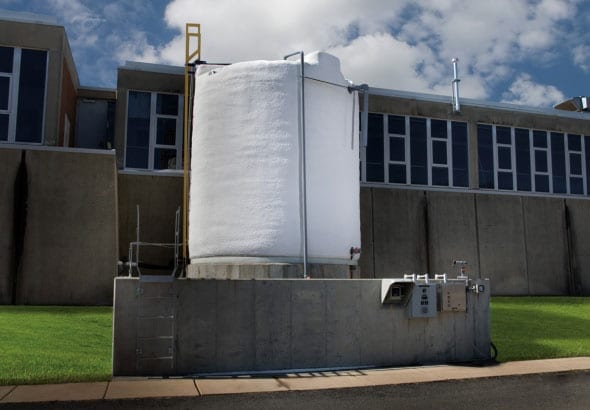Containing chemicals that react to their environment
Ferrics, alums and polymers are commonly used to treat water and wastewater. There are several reasons why these substances require specialized storage:
- Separation, settling and coagulation are major issues with these chemicals – and those conditions can be compounded by temperature variations.
- Settling and separation issues can lead to difficulty in pumping the chemicals.
- The chemicals are often delivered at elevated temperatures, testing the expansion and contraction capabilities of a tank.
- Ferrics create fumes that can defoliate surrounding trees and plants.
- Polymers can act as an environmental stress-cracking agent.
By providing the right kind of storage for these chemicals, safety can be maintained – and the integrity of the product can be preserved.
The Poly Processing System for Ferrics, Alums and Polymers
Several of Poly Processing’s features can make your storage system work for handling ferrics, alums and polymers. An IMFO® system is ideal for sludge control and ease of cleaning, since the tank drains at its true bottom. Heat pads and insulation can help keep the chemicals at the optimal temperature, greatly reducing the chance of separation and settling.
A mixing system can also be installed to keep the chemicals from separating – and a scrubber can help reduce the effects on foliage if you’re venting outdoors.
As for handling elevated temperatures – this is where the strength of the XLPE tank comes in. The crosslinked construction of these tanks allows for greater expansion and contraction, while maintaining structural integrity, lessening your risk for tank failure.
*Based on type of polymer, amount of solids, etc., specific gravities can vary. Consult the specific MSDS for correct weight.




